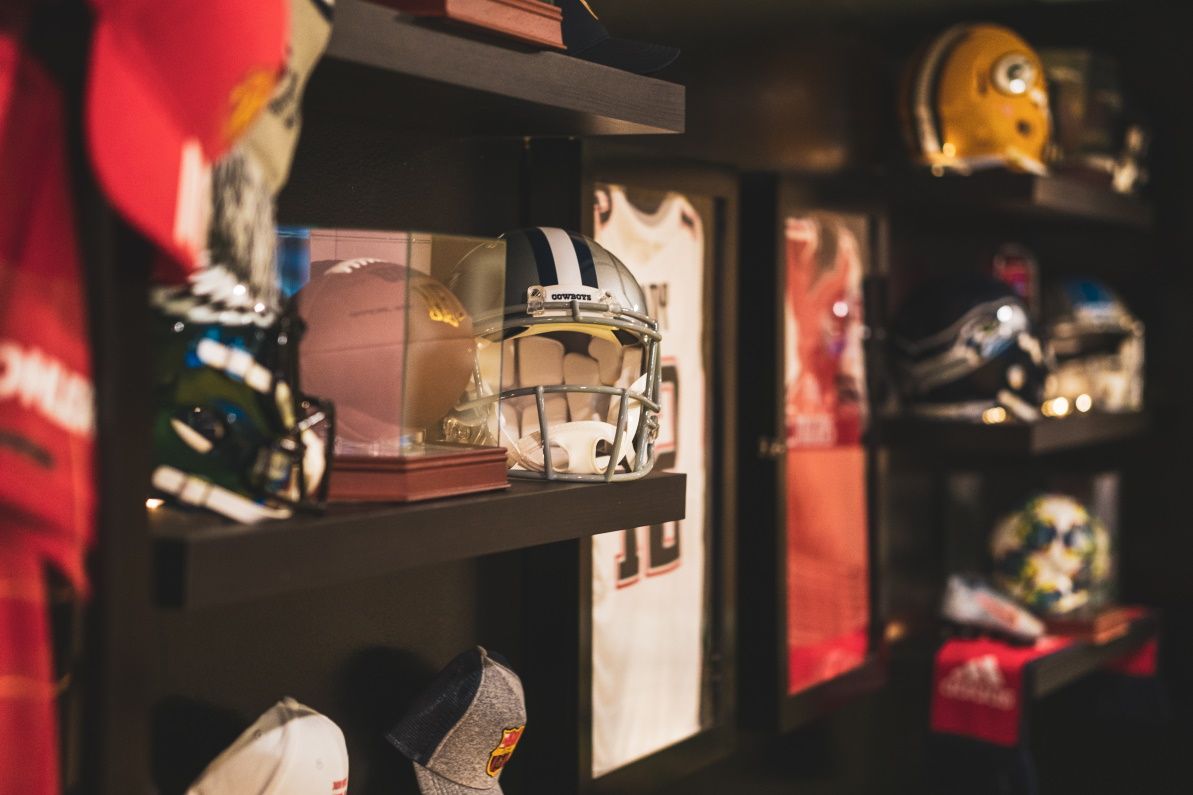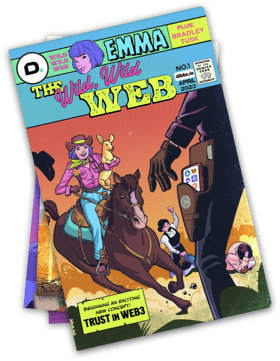What Is NFT Tokenization?
Guitars, limited run artwork, and iconic memorabilia; all of these items can become tokenized NFTs.

NFTs have come a long way since colored coins (on the Bitcoin network) and Quantum, a digital image of a pixelated octagon filled with different shapes.
Currently, they’re reshaping the landscape of asset ownership and revolutionizing the way individuals perceive and interact with both tangible and digital assets through tokenization.
But what is NFT tokenization and how is it unlocking new dimensions of value and connection for brands and businesses?
In this article, we’ll dig deeper into NFT tokenization, unravel its benefits for businesses and identify the items that can be tokenized.
Subscribe to get our best content in your inbox
By clicking “Submit” you agree to Dibbs
Privacy Policy and
consent to Dibbs using your contact data for newsletter purposes.

What is NFT tokenization?
NFT tokenization is the process of converting unique digital or physical assets, like art, music, collectibles, or real estate, into non-fungible tokens (NFTs) on a blockchain. Each NFT represents a one-of-a-kind item and is secured by blockchain technology, making it tamper-proof and allowing ownership and provenance to be easily verified.
Once tokenized and minted on the blockchain, these NFTs can be bought, sold, and traded in a transparent and decentralized manner, fostering new possibilities for digital ownership and creativity.
Business benefits of NFT tokenization
NFT tokenization unfolds many benefits for businesses venturing into the frontier of digital ownership and creativity. Let's explore them:
Intellectual Property Protection
NFTs are revolutionizing the way brands maintain and protect their intellectual property (IP) effectively. By tokenizing their digital assets, brands can ensure each piece of content is unique, traceable, and cannot be duplicated without permission.
This is because NFTs leverage blockchain technology, which helps track the lifecycle of digital assets and ensure that the IP is used in an authorized manner. For example, if an artist releases their album as NFTs, they can retain ownership rights and maintain control over resale and royalties to get fair distribution.
Authenticity and Provenance Tracking
The ability to track the authenticity and provenance of products is a significant advantage for brands, especially in the luxury goods and collectibles market.NFT tokenization helps with this; it provides a transparent and immutable record of an item's history, from creation to current ownership. This system deters counterfeit products and adds a layer of prestige and assurance for both buyers and sellers in the high-value collectibles market.
For example, a luxury watchmaker could issue NFTs alongside their physical watches, allowing buyers to verify the authenticity of their purchase and track its history, which is particularly valuable in the resale market.
Improved Engagement and Customer Retention
When a brand tokenizes a product or experience as redeemable NFT, it creates a unique and ongoing relationship with the customer, offering them exclusive access, personalized content, or special privileges that deepen their engagement and loyalty to the brand. This approach elevates the customer's interaction from a mere transaction to a participatory and immersive experience with the brand's ecosystem.
Enhanced Customer Insights
The integration of NFTs into a brand's strategy offers a unique opportunity to gain enhanced customer insights, a crucial aspect for any business aiming to tailor its products and marketing strategies more effectively. Every transaction and interaction involving an NFT is recorded on the blockchain, which provides an immutable and transparent trail of data. This data is not just about the sale or purchase of the NFT; it encompasses a wide range of interactions, including how customers use and engage with the NFT, the frequency of these interactions, and the broader context of these engagements.
For brands, this wealth of data is invaluable. It offers deep insights into customer preferences and behaviors, which can be far more detailed than traditional data collection methods. For instance, a brand can track which NFTs are most popular, how they are being used, and the demographics of the customers engaging with them.
This information can inform future product developments, marketing campaigns, and customer engagement strategies. It allows brands to not only understand their current customer base better but also to predict future trends and preferences.
Which items are good fits for NFT tokenization?
The NFT tokenization realm has no limits, Artifacts, real estate, digital creations, and even moments in time—all hold the promise of becoming NFTs, each with its unique story and value. Here are some real-world examples that underscore various applications of NFT tokenization:
- Digital artwork: In 2021, artist Beeple's digital artwork titled "Everydays: The First 5000 Days" was sold as an NFT for a staggering $69 million at Christie's auction house.
- Music: Musician Grimes sold her NFT work named 'War Nymph' for over $6 million in February 2021.
- Memes: The original drawing of the famous internet meme "Nyan Cat" by Chris Torres was sold as an NFT for $600k in May 2020,
- Virtual real estate: Decentraland, a blockchain-based metaverse, has become a prominent example of virtual real estate represented as NFTs. Users in Decentraland can purchase, trade, and sell parcels of virtual land, each uniquely represented as an NFT. This digital real estate market mimics the tangible property market, offering a new form of economic activity and investment in the digital world.
- Sportscards: opps, a company renowned for trading cards since the 1950s, ventured into the NFT space by creating a digital version of a 1952 Mickey Mantle card. This card was minted as a brand-new NFT and auctioned off, fetching a remarkable $471,000 on OpenSea. The auction also included an experiential incentive, offering the winner a 30-minute interview with Mickey Mantle’s sons, adding a unique dimension to the collectible's value.
Start NFT Tokenization With Dibbs
While NFT tokenization brings lots of benefits to brands and business, navigating the challenges of asset tokenization can be difficult for brands new to the NFT space.
This is where Dibbs a Tokenization-as-a-Service (TaaS) comes in. We help brands with the technological aspect of tokenization without compromising on the customer experience.
In other words, we take care of everything from minting the NFT to making the redemption easier for your users. To learn more about how Dibbs can help you get started with tokenizing your assets, schedule a demo with us.

Jonathan Barbone
Jonathan Barbone is the Senior Director of Partnerships at Dibbs. Jonathan was an avid Magic: The Gathering card collector as a child.

